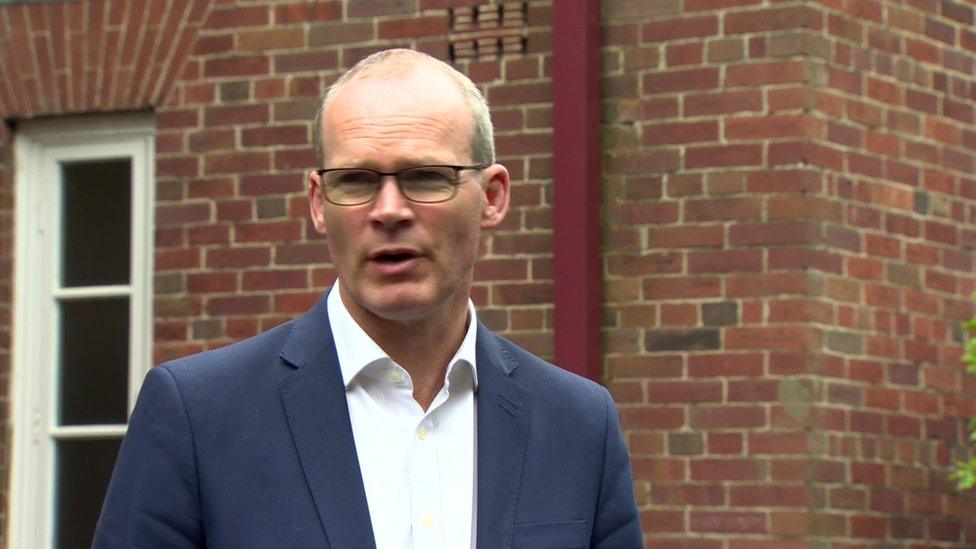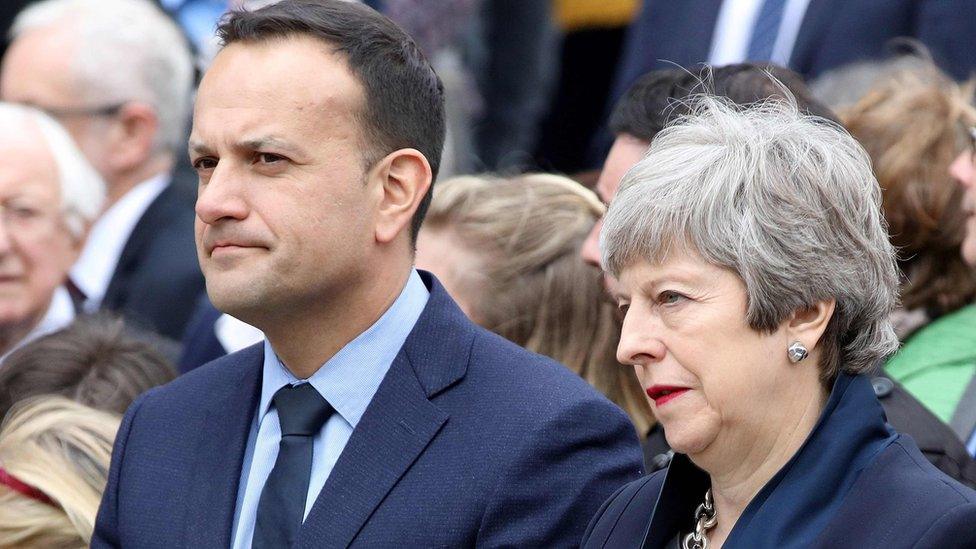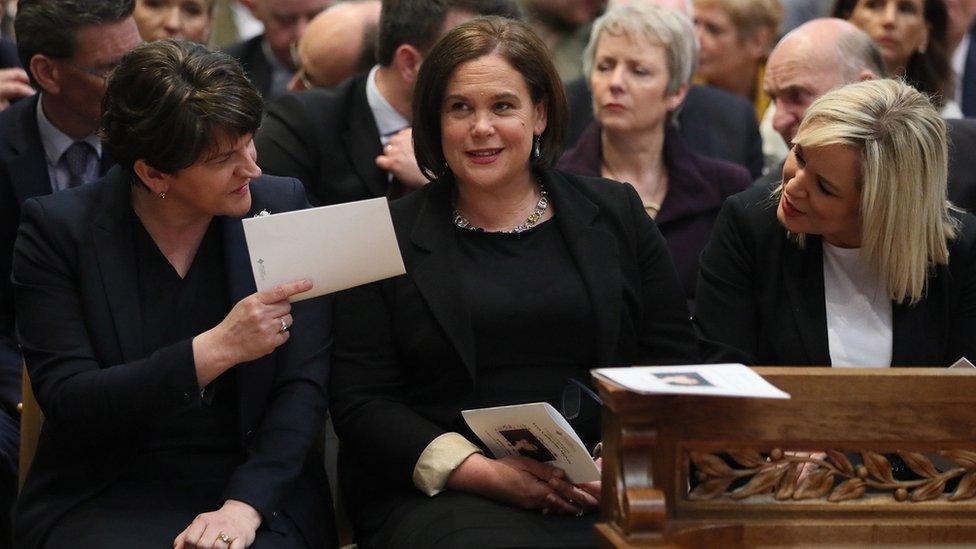Stormont talks: Simon Coveney says 'mood music' best in years
- Published
'It'll be a pretty intense this week'
The "mood music" in NI's political talks is better than at any time in the last two years, Tánaiste (Irish deputy prime minister) Simon Coveney has said.
Talks aimed at restoring the power-sharing executive intensified last week and are continuing this week.
Northern Ireland has been without a devolved government for more than two and a half years.
Mr Coveney said there are "three or four key areas where we don't have agreed compromise right now".
Talking to Ireland's Newstalk radio programme, external, he added: "That is what the next two weeks will be about.
"They're some of the issues that prevented agreement 18 months ago and are still preventing agreement.
"Having said that, I think the mood music is better now than we've had at any time in the last two years."

What are the main sticking points in the NI talks?
Irish language act: Sinn Féin and the DUP were thought to be close to a deal in 2018, but talks broke down on St Valentine's Day due to a disagreement over a "standalone" Irish language act.
Same-sex marriage: Sinn Féin has campaigned for it to be legalised but the DUP remains opposed. The last time MLAs voted on the issue, support for same-sex marriage achieved a narrow majority, but the DUP used a Stormont veto to block any change in the law.
RHI scandal: Sinn Féin walked out of Stormont's power-sharing government in January 2017 in protest over the DUP's handling of a green energy initiative known as the Renewable Heat Incentive (RHI) scheme. Failure to control costs led to a huge projected overspend and the scheme became the subject of a public inquiry which is yet to release its final report.

Mr Coveney admitted that it would not be easy to get agreement on some of the issues.
"My role and the role of the British government will be to work with political leaders in Northern Ireland to try to find a way to get compromise in these key sensitive areas where there are no winners so everybody can move forward together," he said.
"That's going to be difficult, it's going to be fractious I suspect.
"But I think we can do it and I think people need to remember what this is all about, which is trying to give political leadership in Northern Ireland which is very exposed and very vulnerable in the context of Brexit debates."
Northern Ireland's devolved government collapsed after a bitter split in the power-sharing coalition led by the Democratic Unionist Party (DUP) and Sinn Féin.
The latest effort to restore devolution began on 7 May, shortly after the killing of journalist Lyra McKee.
- Published30 May 2019

- Published26 April 2019

- Published27 April 2019
